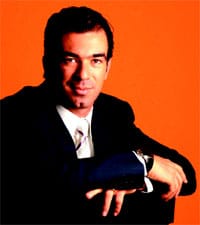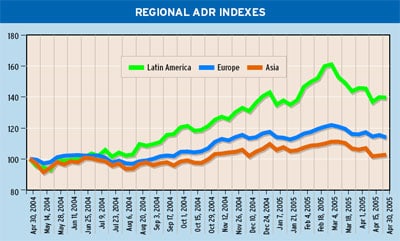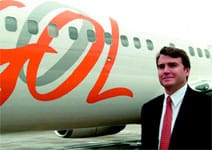SEC Likely to Change Rules for Securities Offerings to Attract Foreign Issuers

Now that the burdens imposed by the Sarbanes-Oxley Act have scared a number of non-US issuers away from the US capital markets, the Securities and Exchange Commission is preparing to reform the securities offering process, hoping to win some of those companies back.
The effort is unlikely to bear fruit, lawyers say, except for possibly luring a few large, well-known companies, which will receive special status under the new rules.
A new category of well-known seasoned issuers, or WKSIs, will gain new flexibility that will enable them to jump into the markets more quickly with new issues. WKSIs are companies that have filed their SEC-required documents on a timely basis in the past year and have more than $700 million of common stock outstanding. In the case of debt offerings, WKSIs must have issued at least $1 billion of registered debt securities in the preceding three years.
The reforms will make it much easier for large, non-US corporations to do registered securities offerings in the US, says Richard Baumann, London-based partner at Dorsey & Whitney, who heads the firms international capital markets practice.
The SEC reforms are likely to be adopted in the coming months, and maybe in the coming weeks, Baumann says, noting that the comment period ended in January 2005. The new rules could radically change the way US-registered securities offerings are marketed and documented, he says.
Changes to the communications process will make it easier for foreign issuers to handle the publicity restrictions in the US, which are more restrictive than in Europe, Baumann says. This will make it easier for corporate executives of issuing companies to talk to the media, for example.
Under the proposals, all existing limitations on communications made during the offering process would be eliminated for seasoned issuers.
It is purely coincidental, Baumann says, that the US reforms are coming at the same time that the EU is implementing the Prospectus Directive, which will introduce a single set of documents, or passport, for raising capital on a regulated market in any EU-member country, effective July 1, 2005.
The proposed US regime appears to offer certain advantages compared to the EU market, where companies are required to wait for at least seven days before making a rights offering, Baumann says. There would be no such delay for WKSIs making rights offerings in the US.

|
|
|
While the new rules are designed to modernize and streamline the process of offering securities, as well as to make more information available to investors and increase use of the Internet, the SEC is also keenly interested in steering more transactions to the US public market through registration, lawyers say. The SEC is also hoping to reduce reliance on private placements conducted under Rule 144A, as opposed to registered offerings.
It remains to been seen to what extent foreign issuers will return to the US capital markets as a result of the proposals, according to lawyers at Cleary Gottlieb Steen & Hamilton in New York.
They say that while some foreign companies may view the benefits of WKSI status as outweighing the burdens imposed by Sarbanes-Oxley, many will not.
In its November 2004 release proposing the changes to its securities registration and offering rules, the SEC said the existing regime hinders legitimate communications that would be helpful to investors and has led to the practice of marketing securities through road shows to selected institutional investors and broker-dealers.
In the future, it suggests, road-show presentations should be done on the Internet, giving small investors access to the same information as larger investors.
|
Brazilian Airline Issues Shares |
||
Brazils only low-fare airline, GOL Linhas Areas Inteligentes, raised about $180 million in its second international offering of American depositary shares (and a simultaneous Brazilian offering of preferred shares) in less than a year. The fast-growing airline will use the proceeds to buy and lease additional Boeing 737 Next Generation aircraft. GOL offered 5.5 million preferred shares, and stockholder BSSF Air Holdings, an affiliate of AIG Capital Partners, sold 9.2 million shares. Each American depositary receipt represents two preferred shares. Morgan Stanley led the international offering, as sole book-running manager, and Merrill Lynch, Raymond James and Santander Investment were joint lead managers. The local offering in Brazil was led by Banco Santander Brasil and Morgan Stanley, as joint bookrunners, and Banco Ita BBA as co-lead manager. Morgan Stanley was the global coordinator of the offering. Gol, which started as a bus company, provides frequent service on routes between all of Brazils major cities and is expanding into neighboring countries. We still have the bus company, but flying beats taking the bus, says Constantino de Oliveira Jr., Gols chief executive, who rang the opening bell on the New York Stock Exchange. Gols ultimate goal is to serve all countries in South America, de Oliveira says, but the company has no intention of becoming an international overseas airline. GOL operates one of the youngest and most modern fleets in the industry. It offers a single-class of service and uses only Boeing aircraft. De Oliveira says GOL chose the US aircraft maker over Airbus because Boeings planes fit its operating and route structure and are easy to maintain, with quick turnaround times. With low fares and new planes, GOL is similar to JetBlue Airways of the US from the customers perspective, says Richard Lark Jr., CFO and investor relations officer for the Brazilian airline. GOL sells 80% of its tickets on the Internet. From an operating viewpoint, GOL is more like Southwest Airlines of the US, with its short-haul routes, and Ryanair [Europes largest low-fare airline] in terms of revenue management, Lark says. GOL began operations in 2001 with six aircraft serving five cities in Brazil. It now serves 29 Brazilian cities and plans to have 40 aircraft by the end of 2005, up from 27 at the end of last year. The airline began flying to Buenos Aires in December 2004 and added flights to Bogota, Colombia, this year. Uruguay and Paraguay will be served later this year. Our market share in Brazil has risen from zero to 26% in just four years, and we can increase it to the low 30s by the end of 2005, Lark says. The airline is increasing night flights at fares similar to what it costs to go by bus, he says. Lark says the airline is satisfied with its ADR program, which is run by the Bank of New York. The value of Gols shares traded on the New York Stock Exchange ranges between $6 million and $8 million a day. Liquidity has been good, Lark says, and the program has helped the company to reach a broader range of institutional investors, including some who are allowed to invest in ADRs but not foreign-listed shares. |
Malayan Banking Starts Program

|
|
|
Malayan Banking, or Maybank, launched an ADR program on May 3, 2005, becoming the 14th Malaysian-based company to issue ADRs.
The bank issued 50 million shares, or 1.35% of its total shares, to be traded as ADRs in the US over-the-counter market. Maybank selected Bank of New York as depositary and said it was seeking to broaden its foreign shareholder base and create greater awareness of its brand by US investors.
Each ADR represents two ordinary shares, which trade on the Kuala Lumpur Stock Exchange.
Bank of New York also was selected by China Techfaith Wireless Communication Technology as depositary for the companys Nasdaq-listed ADR program. Each ADR represents 15 ordinary shares.
China is emerging as a top growth area for ADRs, says Christopher Sturdy, managing director and head of Bank of New Yorks depositary receipt division. This [China Techfaith] newly listed program supports the strong interest and increased activity we are seeing throughout Asia, Sturdy says.
Beijing-based China Techfaith designs mobile phones and wireless communication terminals.
Bank of New York also announced a Regulation S program for Concern Galnaftogaz, a Ukrainian distributor of gasoline and oil products to the domestic retail market. Meanwhile, Bank of New York was selected as successor depositary for the J Sainsbury ADR facility. Each Sainsbury ADR represents four ordinary shares. Shares in the UK-based food retailer and financial services provider trade on the London Stock Exchange, and the ADRs trade in the US over-the-counter market.
The companys businesses include Sainsburys Supermarkets and Sainsburys Bank, and it employs 147,500 people.
|
Turkcell Makes Bonus Issue |
 JPMorgan Chase announced that Turkcell is offering a bonus issue for holders of its NYSE-listed ADRs. The Turkey-based telecommunications company approved a bonus issue of slightly less than 25.8% of its tradable shares, payable on June 9, 2005. According to JPMorgan, fractional shares resulting from the bonus issue will be sold and the proceeds allocated in cash. Two Turkcell ADRs are equivalent to five tradable shares. The ADR ratio was changed on April 29, 2005, from one ADR to 2,500 ordinary shares, in connection with the re-denomination of the Turkish lira. |
Gordon Platt




